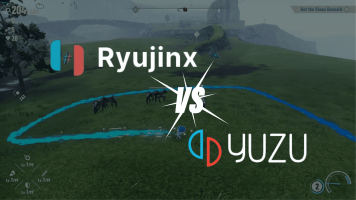Joking aside, Rachael Hutchinson – author of Japanese Culture Through Video Games – feels that it perhaps goes a little deeper than that, especially in regards to the iconic rivalry / friendship of Ryu and Ken, arguably the two 'main' characters in the game.
Speaking on Japanese TV recently, Hutchinson is reported to have claimed that Ryu and Ken's occasionally combative relationship reflected the commercial "conflict" between Japan and the USA in the early '90s. Back then, Japan was on the up economically, and the global rise of companies such as Nintendo, Sega, Sony and Panasonic has been perceived by some historians as a commercial invasion of sorts.
Japanese game researcher Hiroshi Yoshida, author of the University of Tokyo Press book Digital Game Research, has noted that the reaction to these comments from Japanese viewers has been rather negative:
On a recent NHK program, an American game researcher "explained" that "the rivalry between Ken and Ryu in Street Fighter represented the conflict structure between Japan and the United States at the time (that is how players experienced it)." This has resulted in Japanese people who played the game in real time at the time reacting, saying "that's not true," creating a rather serious problem.
Yoshida agrees with the reaction of his countrymen and doesn't feel that Hutchinson's take is the correct one – but adds that her view should be seen as valid nonetheless:
Yoshida adds that in many other forms of media, the creator leaves notes which inform modern audiences about their intentions, but games often lack this context – leading to such speculation:I (as a Japanese person who played Street Fighter 2 at the time) also think that this is not the case, but from an "objective (historical, economic, political)" perspective, such explanations and interpretations can be established as consistent and rational, and unless those who argue against it have evidence to refute it (that is not subjective), it is not a counterargument.
In the case of art, movies, and manga, there are often preserved notes and recollections from the creators (or those around them), which allow future researchers and historians to provide objectively valid interpretations and explanations. However, in the case of games, these often do not remain, and as a result, they tend to be linked to general political, economic, and cultural circumstances.
For what it's worth, Hardcore Gaming 101 (which highlighted Yoshida's comments) is in agreement with Hutchinson, so perhaps what we're seeing here is a perspective unique to North American or Western players?





